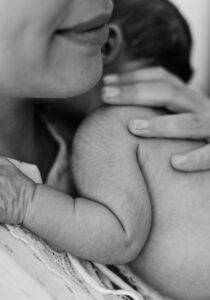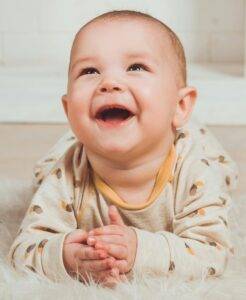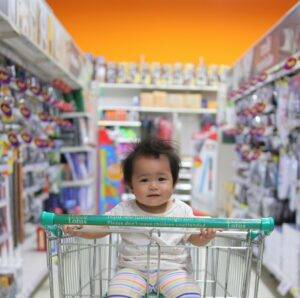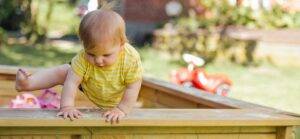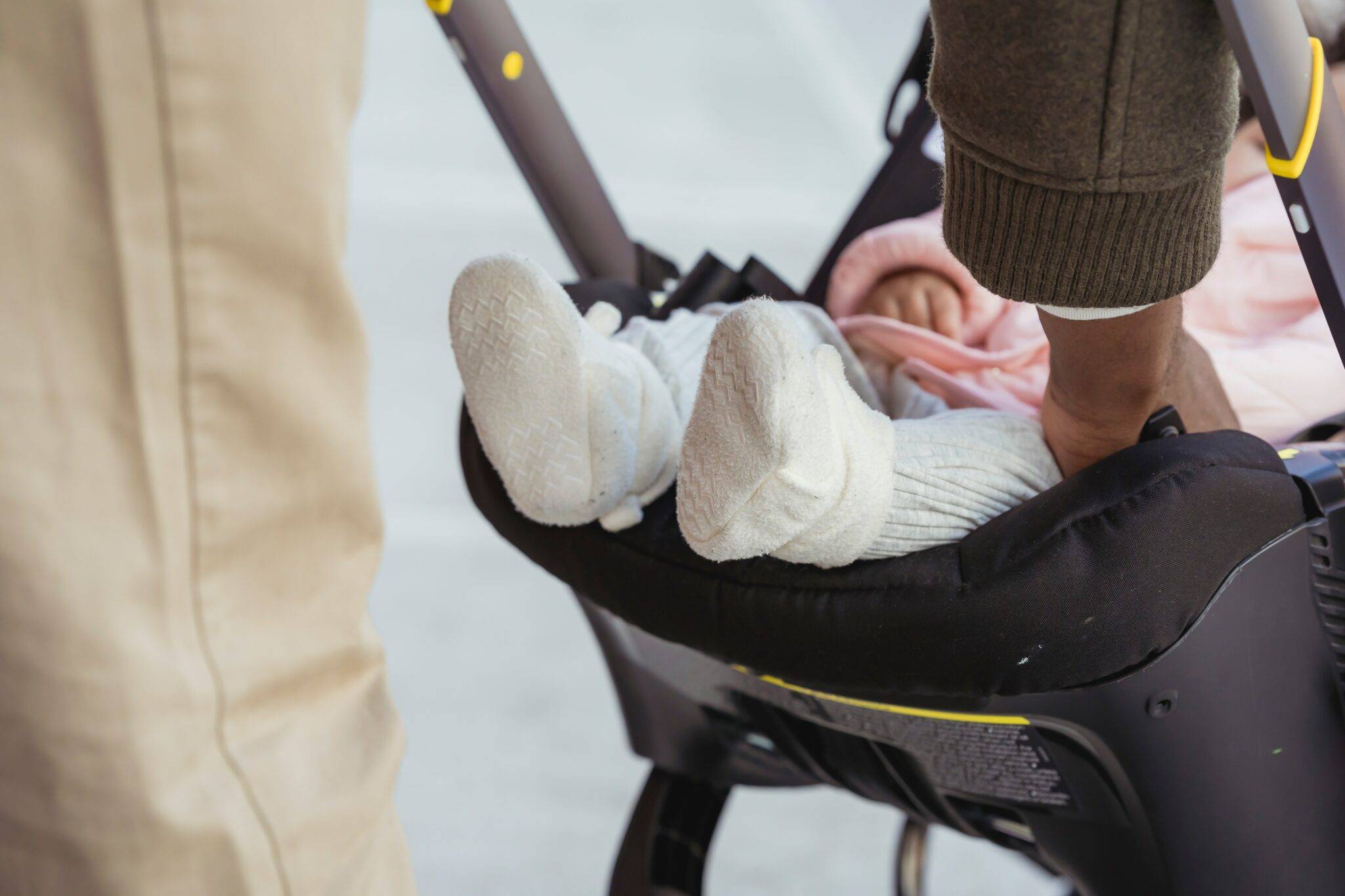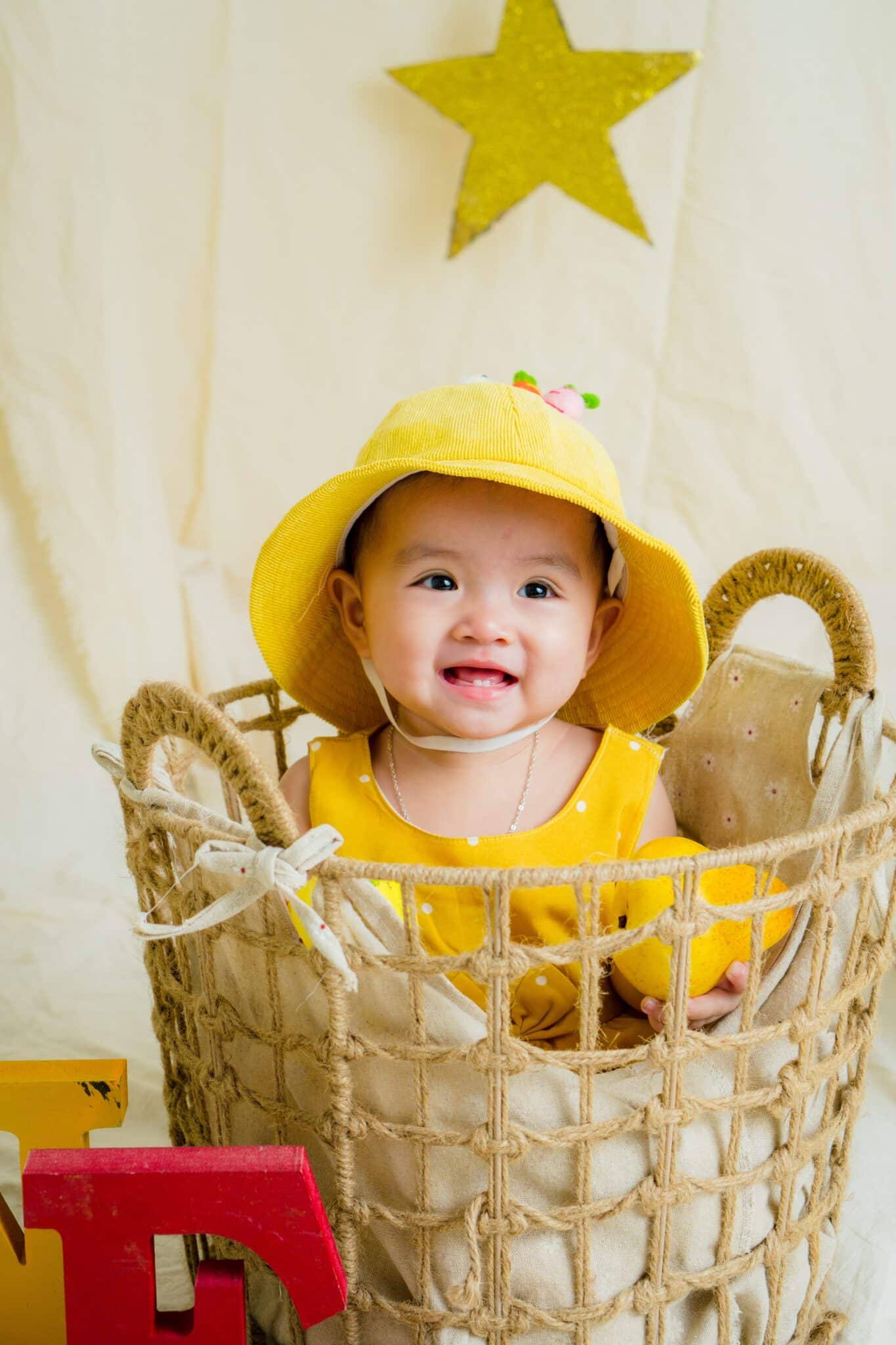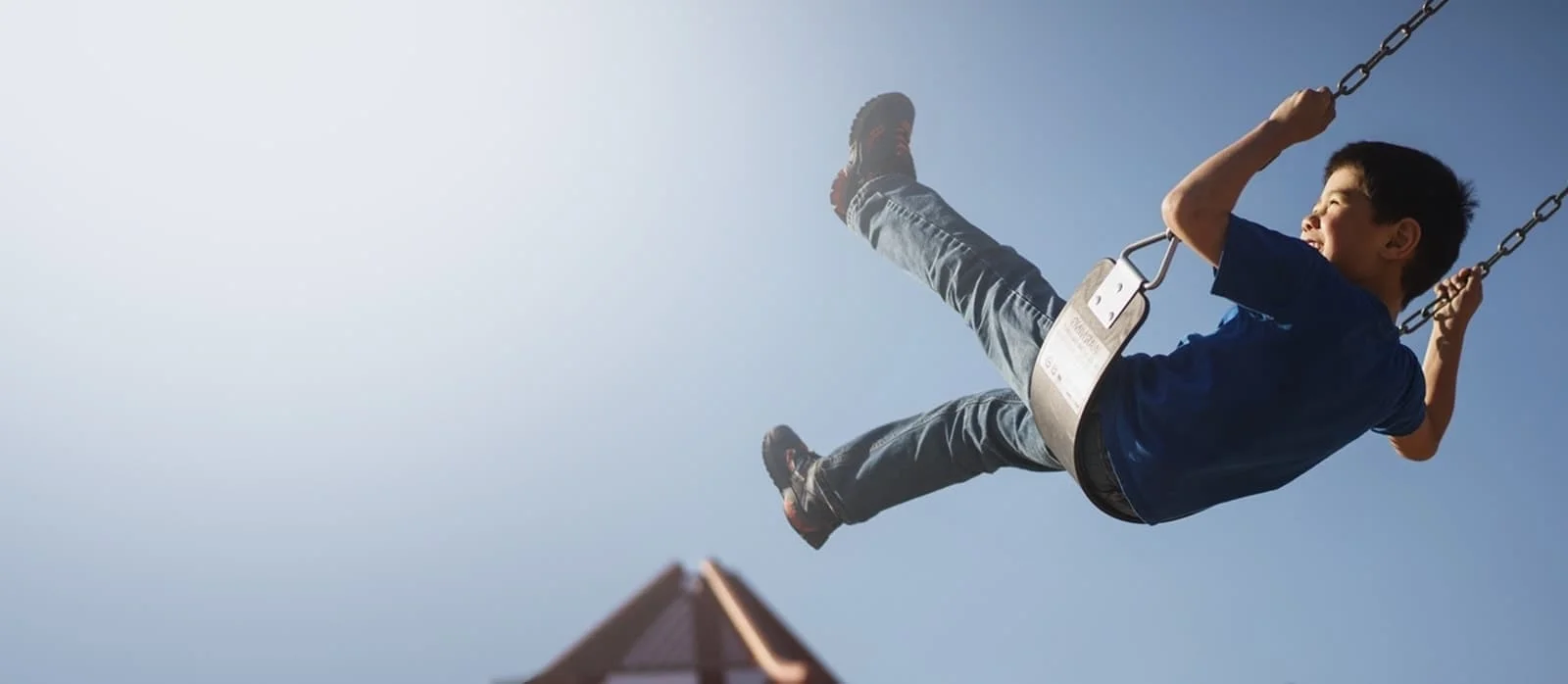Welcoming a newborn is an exciting and transformative experience. Each day brings new surprises as your baby grows and explores the world. Watching your little one reach key developmental milestones is thrilling and reassuring. As new parents, it isn’t surprising to wonder if your baby is growing and developing as expected.
Understanding newborn milestones helps you track your baby’s progress, celebrate their achievements, and recognize potential issues early on. This month-by-month guide will walk you through the key developmental milestones to expect during your baby’s first year. This guide covers everything, from their first smile to their first steps.
Knowing what to expect, you can better support your child’s growth and development, making these early months as enriching as possible.
Understanding Newborn Milestones
Before diving into the month-by-month milestones, understand what we mean by “milestones.” Developmental milestones are key skills or activities children can do by a certain age. Every baby is unique and reaches these milestones at their own pace. These newborn milestones are divided into different categories, including:
- Physical Milestones: Gross and fine motor skills, such as rolling over or grabbing objects.
- Cognitive Milestones: Thinking and problem-solving, like recognizing faces or playing peek-a-boo.
- Social and Emotional Milestones: Interaction with others, such as smiling or showing signs of affection.
- Language and Communication Milestones: Understanding and producing language, such as babbling or saying their first word.
Month 1: The Early Days
Physical Development: Your newborn is focused on adjusting to the outside world. You’ll notice they spend most of their time sleeping, typically around 16–18 hours. Don’t be surprised if your baby’s movements seem jerky or uncoordinated—this is completely normal as they gain control over their muscles.
Cognitive Development: Your baby’s brain is rapidly growing. They recognize your voice and may even turn their heads toward familiar sounds. While their vision develops, newborns see objects and faces 8-12 inches away. They also start to differentiate between smells and show a preference for the scent of their mother.
Social and Emotional Development: Newborn milestones show babies learning about the world around them. They communicate through crying, expressing hunger, discomfort, or sleep. Although smiles are rare during the first month, some babies show early signs of social smiles, especially when they hear or see their parents.
Month 2: Growing Awareness
Physical Development: Your baby is more alert and active. You may notice they lift their head briefly during tummy time, showing signs of stronger neck muscles. Their movements will become more purposeful as they explore their surroundings with their hands and feet.
Cognitive Development: Your baby’s vision continues to improve, and they follow moving objects with their eyes. This is known as “tracking.” You’ll also see them responding more to sounds, especially your voice. This is an excellent time to start reading to your baby, as it helps with language development.
Social and Emotional Development: Around this time, your baby will smile more often, a significant social milestone. These smiles are typically your interaction, such as talking or singing. Your baby will also show different emotions, such as excitement when they see a favorite toy or frustration when they’re tired or hungry.
Month 3: Building Strength–Muscles and Social Bonds
Physical Development: Your baby’s physical abilities are steadily improving. They hold their heads up more consistently during tummy time and push up on their arms. You’ll notice that their movements are becoming smoother, and they bring their hands to their mouth—a sign they’re beginning to explore their environment more actively.
Cognitive Development: Your baby’s brain is rapidly growing, and becoming more curious about its surroundings. They’ll recognize familiar faces and objects, and explore toys with their hands. At this stage, your baby’s hearing develops and they turn towards sounds or track them with their eyes.
Social and Emotional Development: Your baby’s personality starts to shine. They’ll likely engage more with you through cooing and babbling, responding to your voice, and expressing their feelings. You’ll also notice that they’re more interested in social interaction, smiling and laughing when you play with them.
Month 4: Exploring the World
Physical Development: Your baby’s physical strength is noticeable. They hold their heads steady without support. Some babies may roll over from tummy to back. Their hand-eye coordination is improving, and they’ll reach for and grasp objects more deliberately.
Cognitive Development: Your baby’s cognitive skills are expanding. They understand cause and effect, like realizing that shaking a rattle makes noise. This is an excellent time to introduce toys that encourage exploration and problem-solving.
Social and Emotional Development: Your baby’s social skills continue to develop and become more expressive. They’ll enjoy interacting with you and show a preference for certain people. At this stage, your baby may recognize their name, respond with a smile, or turn their head when they hear it.
Month 5: Building Strength and Personality
Physical Development: Your baby is more mobile and active. They roll over from back to tummy and are likely getting better at sitting up with support. Their hand movements are more refined, allowing them to pass objects with one hand.
Cognitive Development: Your baby’s memory is improving, and they anticipate daily routines. They get excited when they see a bottle or running bathwater. Their curiosity is growing, and they’ll spend more time exploring objects with their hands and mouths.
Social and Emotional Development: By now, your baby is more aware of the emotions of those around them. They prefer certain toys or people and become upset when separated from you. This is also a time when many babies develop “stranger anxiety,” a normal part of emotional development.
Month 6: Sitting and Babbling
Physical Development: Many babies sit up with little or no support. Their muscles are getting stronger, and they rock back and forth on their hands and knees—a precursor to crawling. Also, babies show more control over their hands, picking up small objects with a pincer grasp.
Cognitive Development: Your baby’s cognitive abilities are becoming more sophisticated. They’re learning how objects interact with each other, like understanding that a ball will roll if pushed. Their communication skills are also advancing, babbling repetitive syllables like “da-da” or “ma-ma.”
Social and Emotional Development: This is an exciting time for social development. Your baby is becoming more interactive and mimics your facial expressions and sounds. They’re also developing a stronger attachment to you, which leads to increased separation anxiety when you’re not around.
Month 7: Exploring and Experimenting–Preparing to Crawl
Physical Development: By seven months, your baby is getting ready to crawl. They might start moving forward by scooting on their tummy or rocking on their hands and knees. Their fine motor skills are also improving, and they transfer objects from one hand.
Cognitive Development: Your baby’s cognitive skills are advancing, and they understand object permanence—the idea that objects continue to exist even when they’re out of sight. This is a critical cognitive milestone that helps with problem-solving and memory.
Social and Emotional Development: Your baby is becoming more social and playing games like peek-a-boo, reinforcing their understanding of object permanence. They also understand the meaning of certain words, even if they can’t say them yet. This is a great time to introduce simple, interactive books to encourage language development.
Month 8: Gaining Independence–Crawling and Climbing
Physical Development: Many babies are on the move! Whether crawling, scooting, or rolling, your baby is finding ways to get around. They start pulling themselves up to stand, using furniture for support. This newfound mobility means it’s time to baby-proof your home if you haven’t already.
Cognitive Development: Your baby’s brain is developing rapidly, and they’re more curious about how things work. They enjoy exploring toys with moving parts or experimenting with cause-and-effect activities, like pressing a button to make a toy light up or playing music.
Social and Emotional Development: Your baby is becoming more expressive and shows affection by giving hugs or kisses. They also respond to simple commands like “no” or “come here.” At this stage, they show preferences for certain toys or activities, indicating the development of their personality.
Month 9: Becoming More Social
Physical Development: Your baby’s physical skills are flourishing. They might be crawling efficiently, pulling themselves up to stand, or even cruising along furniture. Some babies take their first steps with assistance, marking the beginning of their journey towards walking.
Cognitive Development: Your baby’s cognitive abilities are expanding and becoming more independent in their play. They engage in more complex activities, like stacking blocks or fitting shapes into a sorter. Their memory is improving, and they remember where their favorite toys are kept.
Social and Emotional Development: A stage of growing independence, but your baby still relies heavily on you for comfort and security. They’re interested in playing with other children, though parallel play (playing next to but not directly with another child) is more common. Your baby expresses a wide range of emotions.
Month 10: On the Move–Standing and Learning
Physical Development: Your baby is likely getting stronger and more confident in their movements. They stand for a few seconds without support or walk while holding furniture. Their fine motor skills are also improving, and they use a pincer grasp to pick up small objects more precisely.
Cognitive Development: Your baby’s brain is rapidly developing, and they understand more complex concepts. They use simple gestures, like waving goodbye or shaking their head to indicate “no.” They also understand and respond to familiar words or phrases.
Social and Emotional Development: Your baby is becoming more social and interactive. They imitate your actions, like clapping their hands or using a spoon. They’re also starting to understand the concept of “self” and show interest in looking at themselves in a mirror. This is an excellent time to encourage social interaction through playdates or group activities.
Month 11: Almost a Toddler–Cruising and Communicating
Physical Development: Your baby is cruising confidently along furniture and close to their first independent steps. Their coordination is improving, and they enjoy activities like stacking blocks or placing objects into containers. They show a preference for using one hand over the other.
Cognitive Development: Your baby’s cognitive abilities rapidly grow. They engage in more complex play, like pretending to feed a doll or pushing a toy car. Their understanding of language is also improving, and they say simple words like “mama” or “dada” with meaning.
Social and Emotional Development: Your baby is becoming more expressive and shows a wider range of emotions. They seek comfort from you when they’re upset and could show signs of empathy, like offering a toy to another child. This is a great time to encourage social development through interactive games and activities that involve taking turns or sharing.
Month 12: Celebrating the First Year–Walking and Talking
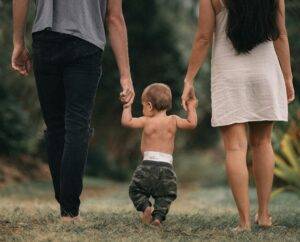
Physical Development: Many babies take their first steps or already walk independently. Their physical coordination is improving, and they enjoy climbing activities, like going upstairs and downstairs with assistance. Their fine motor skills are also advancing; they can use utensils or drink from a cup with some help.
Cognitive Development: Your baby’s brain is growing, and they’re more curious about the world around them. They engage in imaginative play, like pretending to cook or talking on a toy phone. Their language is also improving, and they follow simple instructions, like “Come here” or “Give me the toy.”
Social and Emotional Development: Your baby is more independent but looks to you for comfort and reassurance. They show signs of separation anxiety when you leave the room, but they’re also becoming more interested in social interactions with other children. This is a great time to encourage social development through group activities or playdates.
Celebrate Your Baby’s First Year Milestones
Tracking your newborn milestones is a wonderful way to celebrate their growth and development during their first year. While every baby develops at their own pace, these month-by-month milestones provide a general guideline for what to expect.
For further insights on newborn care and development, check out these related articles from Omegapediatrics.com:
- 11 Key Milestones to Watch For: Parents’ Comprehensive Guide in Baby Development
- Joyful Milestones: From Newborn to Toddler–Your Baby’s Journey with a Pediatrician

